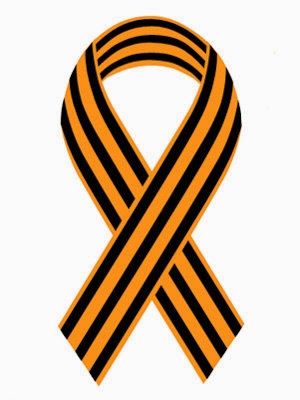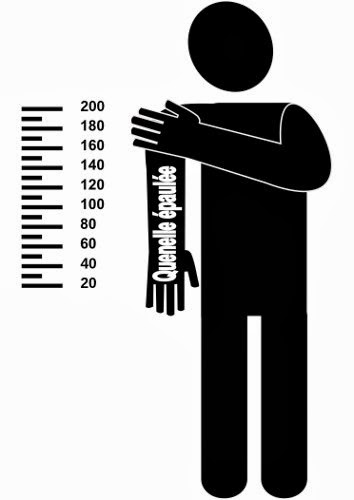West Has Launched a “Media War“
TEHRAN, Sept. 23--Iran is working only for the peace, security and the welfare of the Iranian nation as well as the nations of the region, said a senior military advisor to Iran’s leader, Yahya Rahim Safavi.
Speaking in an exclusive interview in Press TV’s “4Corners“, Major General Safavi added that the West will not succeed in its propaganda war against Iran.
“We are in the headlines of the western media. They have started a media war against Iran in the last few years but they already realized that it is doomed,“ he said.
Safavi, the former head of Islamic Revolution’s Guards Corps (IRGC), was speaking on the occasion of the 27th anniversary of the onset of the Iraq-imposed war in which Iranians courageously defended their country against the brutal onslaught of Saddam Hussein’s Army, which was supported by the West and most Arab regimes.
He noted that the Revolutionary Guards have made tremendous progress in the field of defense.
“Right now, the IRGC has turned into a regular revolutionary army with an Islamic ideology while at the beginning of the war it was only a force to defend the country,“ he said.
 The military advisor, who prefers to be called a professor due to his years of teaching in a university, said the IRGC shares the role of defending the country with the Iranian Army, since the two are arms of the Islamic Republic of Iran.
The military advisor, who prefers to be called a professor due to his years of teaching in a university, said the IRGC shares the role of defending the country with the Iranian Army, since the two are arms of the Islamic Republic of Iran.Referring to foreign threats, he said, “It seems very unlikely that the foreign troops in the region could start another attack because they have been busy with the war in Iraq and Afghanistan and they should focus on that.
Wise and rational people, who are taking care of the war in Iraq, will not risk another attack.“
Safavi stressed that Iran is ready to foil the enemies’ attacks.
Commenting on Iraqi insecurity, he said, “The CIA has armed some 10,000 forces of former Baathist members to fight Al-Qaeda. So, the main problem is the US policies and their improper understanding of cultural and tribal complexities of Iraq.“
He reiterated that Iran has had no military role in Iraq, pointing out that the US has not been able to come up with any evidence to prove Iran’s military involvement in Iraq.
“However, we have enough evidence to show that the US has been arming the counter-Iranian military forces in Iraq,“ he said.
Safavi noted that the security of Iraq is important for Iran for the simplest reason that there are millions of Iranian pilgrims going to Iraq’s holy sites annually and Iraq’s security is to the benefit of the two countries.
“Iran has now a strong intelligence system and missiles. We are closely watching the foreigners’ moves in the neighboring countries by highly advanced satellite technology and advanced radars. If they enter our airspace or our territorial waters, they will get a fair response,“ he said.
Safavi said the equipment shown in the Saturday’s military parade only offer a glimpse of the Iranian arsenal and Iran will not reveal its true defense capabilities unless it’s necessary.
“Our military capabilities are beyond the imagination of our enemies,“ he said.
-------
Iran has become an extra-regional power
The United States must acknowledge that Iran is a powerful state, Major General Yahya Rahim Safavi said here on Sunday.
On the 27th anniversary of the Iraqi invasion of Iran, the Mehr News Agency conducted an interview with Safavi, who is currently the Supreme Leader’s senior advisor on military affairs, in which he elaborated on the roots of the 1980-1988 Iran-Iraq war, the threats that Iran is currently facing, the missile capabilities of the Islamic Revolution Guards Corps (IRGC), and the recent restructuring of the country’s defense system.
Following are excerpts of the interview:
“White House officials should know that the Islamic Republic of Iran will not yield to political and economic pressure.
“If they think wisely and think about their interests, and if they want energy, political, and economic cooperation with Iran, they must recognize Iran as a power.”
Roots of the Iran-Iraq war
The victory of the Islamic Revolution created a new situation for the U.S., and it soon cut ties with the Islamic Republic, said Safavi, who was the commander of the IRGC for ten years.
With the Islamic Revolution, Iran’s geopolitical situation changed since the U.S. lost its main ally in the region, which caused a change in the bipolar world system in favor of the Soviet Union.
He cited former Iranian prime minister Mehdi Bazargan’s efforts in the provisional government to reestablish ties with the U.S. and the problems created by former president Abolhassan Banisadr and his connection with the terrorist Mojahedin Khalq Organization (MKO) as some of the reasons which prepared the ground for the invasion of Iran by Saddam Hussein’s Baath regime.
The Western powers, which were worried about the influence of the Islamic Revolution on regional Arab countries, encouraged Saddam to attack Iran, he added.
Saddam, who wanted to replace the shah as the regional power after the Islamic Revolution, attacked Iran under the pretext that the 1975 Algiers Agreement was imposed on Iraq.
The former IRGC commander said the Baathists began to modernize the Iraqi army in 1975, five years before Iraq attacked Iran.
Between 1975 and 1980, they spent billions of dollars buying arms so that Iraq eventually had the most powerful army in the region, he added.
He described the current regional situation as very critical.
“This does not mean that the United States wants to begin a new war. They already have over 200,000 troops in the region, but despite this, they face three challenging problems,” he noted.
“First, they do not exactly know how Iran will deal with them. I mean they are incapable of calculating the depth and extent of Iran’s (potential) response to their threatening actions… Their second concern is about the security of Israel, and thirdly, they are extremely worried about the oil and energy problems ahead, both in Iraq and the region. One reason for this could be the dramatic increase in the oil price, which recently hit about 81 U.S. dollars per barrel, and even the price of a barrel of oil for OPEC countries, including Iran, has risen to more than 71 U.S. dollars.
“If there is a little spark in the Persian Gulf area, which contains 65 percent of all the world’s oil reserves, the oil price could easily rise to 100 dollars per barrel.
“I think that the rational people in the U.S. Congress and the Democratic Party will not allow the current U.S. administration to declare a new war.”
In Iraq, the United States’ political and military situation has greatly diminished, he stated.
“Despite all this, the Iranian armed forces will carefully monitor the upgrading of the U.S. military and the enemy’s provocative moves in the entire region.”
Iran’s role in regional peace and security
The Islamic Republic of Iran believes that the Persian Gulf and the Middle East region should enjoy lasting peace and security, but unfortunately, U.S. forces came from the other side of the globe and disrupted the region’s security through military occupations of Iraq and Afghanistan, he noted.
Iran desires peace in the region and this can be realized by signing defense treaties with the Arab states of the Persian Gulf, he added.
The United States destroyed two major enemies of Iran, namely the Taleban in the east and Saddam Hussein in the west, and this benefited Iran, he said, adding that recent developments have increased Iran’s political influence in the region.
Pointing out that U.S. officials once thought that they could surround Iran by occupying Afghanistan and Iraq, he said, “Now, the Americans should realize that the 200,000 troops they have deployed in Iraq and Afghanistan are in Iran’s firing range.”
The future of Iraq and Afghanistan
The future of Iraq and Afghanistan is unpredictable, he stated, adding that as a public relations move, the U.S. might reduce troop levels in Iraq, although it actually intends to maintain its military bases in Iraq and the Persian Gulf for years.
Although the U.S. has received millions of dollars from the Iraqi government to equip the Iraqi police and armed forces, the objective has still not been realized, he observed.
The weapons Al-Qaeda and other terrorist groups are currently using are far more advanced than the weapons the Iraqi armed forces possess, and U.S. troops will slowly leave Iraq, so Iraqis, and not U.S. forces, will suffer casualties in terrorist attacks, he added.
IRGC ballistic missiles
“Today, one of our means to confront an invasion is the deterrent power of the ballistic missiles of the IRGC Air Force. They are domestically designed and are being mass-produced by the Defense Ministry,” he stated.
“Currently, we enjoy a good situation in the missile industry. Our missile capabilities are not what the U.S. thinks,” he said, adding that Iran has made the necessary preparations to protect its missile sites from the enemy.
Iran has such great missile capabilities that even if a certain percentage of its arsenal were to be destroyed, the remaining missiles would be devastating for the enemy, he observed.
IRGC’s asymmetrical warfare strategy
“Currently, at a time when we feel the threats of extra-regional powers such as the U.S. against the Islamic Republic of Iran, we have revised the structure of Iran’s armed forces. The training methods, war strategy, and military doctrine of the armed forces, and especially of the three branches of the IRGC, have been revised. We have designed arms and equipment suitable for extra-regional warfare. We have named this strategy comprehensive defense, Alavi battle, and asymmetrical warfare,” Safavi explained.
This strategy means that we identify the enemy’s weak and strong points so that we can confront the enemy with the utmost efficiency, he said.
“It is true that the enemy has superior weaponry, but we have never put our trust in weapons. Rather, we have adopted a human-centered approach and have courageous, faithful, and wise human forces as well as self-contained, dynamic, fast, and effective units,” he added.





